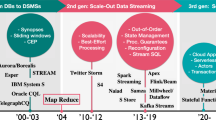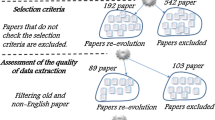Abstract
Grid computing systems are emerging as a computing infrastructure that will enable the use of wide-area network computing systems for a variety of challenging applications. One of these is the ever increasing demand for multimedia from users engaging in a wide range of activities such as scientific research, education, commerce, and entertainment. To provide an adequate level of service to multimedia applications, it is often necessary to simultaneously allocate resources including predetermined capacities from interconnecting networks to the applications. The simultaneous allocation of resources is often referred to as co-allocation in the Grid literature. In this paper, we formally define the co-allocation problem and propose a novel scheme called synchronous queuing (SQ) for implementing co-allocation with quality of service (QoS) assurances in Grids. Unlike existing approaches, SQ does not require advance reservation capabilities at the resources. This enables an SQ-based approach to over subscribe the resources and hence improve resource utilization. The simulation studies performed to evaluate SQ indicate that it outperforms an QoS-based scheme with strict admission control by a significant margin.
Similar content being viewed by others
References
A.C. Arpaci-Dusseau, D.E. Culler and A.M. Mainwaring, Scheduling with implicit information in distributed systems, in: ACM SIGMETRICS Conference on Measurement and Modeling of Computer Systems (June 1998) pp. 233-243.
K. Czajkowski, I. Foster, N. Karonis, C. Kesselman, S. Martin, W. Smith and S. Tuecke, A resource management architecture for metacomputing systems, in: 4th Workshop on Job Scheduling Strategies for Parallel Processing (March 1998) pp. 62-82
D. Ferrari, A. Gupta and G. Ventre, Distributed advance reservation of real-time connections, ACM/Springer-Verlag Journal on Multimedia Systems 5(3) (1997) 187–198.
I. Foster and C. Kesselman, eds., The Grid: Blueprint for a Future Computing Infrastructure (Morgan Kaufmann, San Francisco, USA, 1999).
I. Foster, C. Kesselman, C. Lee, R. Lindell, K. Nahrstedt and A. Roy, A distributed resource management architecture that supports advance reservations and co-allocation, in: International Workshop on Quality of Service (June 1999) pp. 27-36.
I. Foster, C. Kesselman and S. Tuecke, The anatomy of the Grid: Enabling scalable virtual organizations, International Journal on Supercomputer Applications 15(3) (2001) 200–222.
P. Goyal, X. Guo and H. Vin, A hierarchical CPU scheduler for multimedia operating systems, in: 2nd USENIX Symposium on Operating Systems Design and Implementation (OSDI '96) (October 1996) pp. 107-122.
P. Goyal, H.M. Vin and H. Cheng, Start time fair queuing: A scheduling algorithm for integrated services packet switching networks, in: ACM SIGCOMM '96 (August 1996) pp. 157-168.
J. Nieh and M. Lam, The design, implementation, and evaluation of SMART: A scheduler for multimedia applications, in: 16th ACM Symposium on Operating Systems Principles (SOSP '97) (October 1997) pp. 184-197.
P.K. Sinha, Distributed Operating Systems: Concepts and Design (IEEE Press, New York, 1997).
C.A. Waldspurger and W.E. Weihl, Lottery scheduling: Flexible proportional-share resource management, in: 1st USENIX Symposium on Operating System Design and Implementation (OSDI '94) (November 1994) pp. 1-12.
C.A. Waldspurger and W.E. Weihl, Stride scheduling: Deterministic proportional-share resource management, Technical Report, MIT Laboratory for Computer Science, MIT, Cambridge (June 1995).
J. Weissman and P. Srinivasan, Ensemble scheduling: Resource coallocation on the computational Grid, in: 2nd International Workshop on Grid Computing (Grid '01) (November 2001) pp. 87-98.
D. Yau, ARC-H: Uniform CPU scheduling for heterogeneous services, in: International Conference on Multimedia Computing and Systems, Vol. 2 (June 1999) pp. 127–132.
D. Yau and S.S. Lam, Adaptive rate controlled scheduling for multimedia applications, IEEE/ACM Transactions on Networking 5(4) (August 1997) 475–488.
L. Zhang, A new traffic control algorithm for packet switching networks, IEEE Transactions on Computer Systems 9(2) (May 1991) 101–124.
Author information
Authors and Affiliations
Rights and permissions
About this article
Cite this article
Azzedin, F., Maheswaran, M. & Arnason, N. A Synchronous Co-Allocation Mechanism for Grid Computing Systems. Cluster Computing 7, 39–49 (2004). https://doi.org/10.1023/B:CLUS.0000003942.73875.29
Issue Date:
DOI: https://doi.org/10.1023/B:CLUS.0000003942.73875.29




